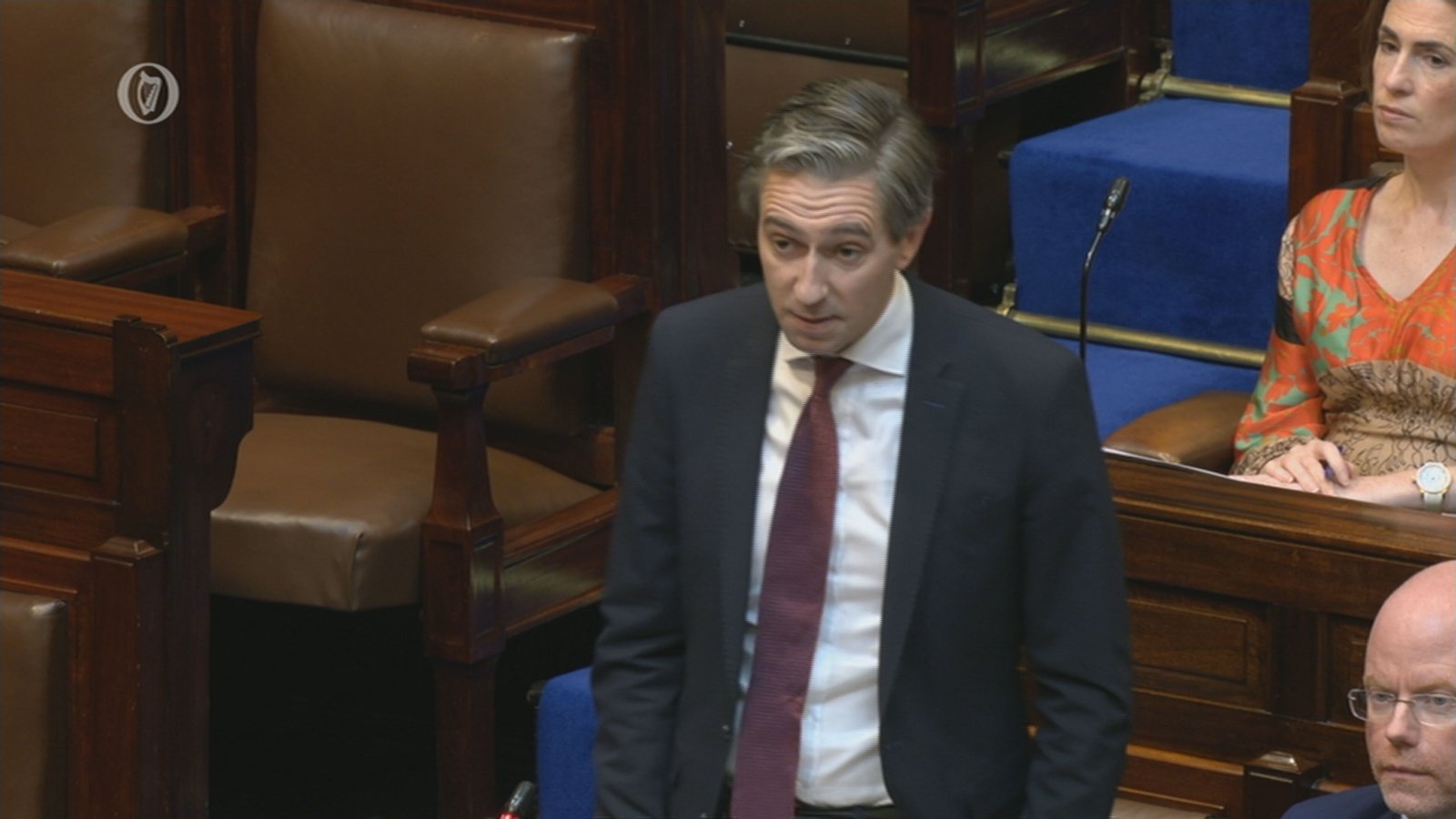World
Taoiseach urges men to speak out on sexual violence

Taoiseach Simon Harris has urged men “to take leadership positions and not allow the worst of us speak for the rest of us” in relation to domestic, sexual and gender-based violence.
Speaking during statements in the Dáil in relation to all forms of such violence, he said that men were mostly responsible.
“To achieve the cultural change we desperately need, we must start with transparency and accountability,” Mr Harris said.
“Every time you see or hear misogynistic behaviour or commentary, call it out. Do not stay silent. Silence can be perceived as agreement.”
Appealing for zero tolerance, Mr Harris said that “there is always someone willing to defend the character of a rapist or a sexual predator,” but “there are far too few people who will stand up for the rights of a victim or speak to their good name”.
We need your consent to load this comcast-player contentWe use comcast-player to manage extra content that can set cookies on your device and collect data about your activity. Please review their details and accept them to load the content.Manage Preferences
He criticised “anonymous briefings” by members of the Dáil which “often tried to portray issues such as hate-filled crime as woke”.
Sexual violence is an “epidemic” and “a societal problem,” and he urged: “Everyone must step-up and play their part”.
Minister for Justice Helen McEntee said that the murder of Ashling Murphy “continues to weigh heavily on all of our hearts”, adding that since then, 20 women have been murdered according to a femicide watchlist.
The “deep-rooted issues in our society” that fuel the “epidemic of domestic, sexual and gender-based violence” have “always been” a part of Ireland, Ms McEntee said, adding: “We must deal with it.”
She commended victims whose experiences have helped to form the Government’s response, which she said has “resulted in progress, and I accept that there is more work to do, but we have made progress”.
The minister also warned that “we have moved into phase where young people have access to violence, they have access to pornography. They have access to violent pornography, literally on their phones at the touch of a button”.
The Government’s Zero Tolerance strategy will ensure “that the voice of the child, importantly, is heard loud and clear as we work to eliminate domestic, sexual and gender-based violence”.
Sinn Féin leader Mary Lou McDonald said that women are “caught in a loop of deja vu and despair” as one case of sexual violence is followed by another.
She commended the “many brave women” who have shared their ordeals, “but women shouldn’t have to be brave. These despicable crimes should not be committed in the first place.”
Ms McDonald said that “the failure of the judicial system to deliver justice for Natasha [O’Brien] exemplifies and compounds the reason why women are afraid to report such crimes”.
“Since 1996, 266 women have died violently in Ireland. 172 killed in their own home, the vast majority killed by someone known to them, mainly a current or former partner.”
She condemned lip service from the Government and called for urgent action.
Social Democrats leader Holly Cairns said that “Ireland has always had a violence against women problem”.
“Culturally, perpetrators are protected and victims are blamed,” she said, noting that periodic societal epiphanies result in no change.
Victims are aware that “the likelihood of receiving justice is astronomically low,” and so choose not to report the crime.
Ms Cairns called for “wholescale reform of how courts and judges” treat and retraumatise women.
Bríd Smith of People Before Profit said that there is “a problem with the judiciary” which is “staring everybody in the face”, and said that retraining might be needed.
She called for an immediate overhaul of sex education, and noted that transgendered people are “four times more likely than you or me” to be subjected to sexual violence.
Her colleague Mick Barry agreed that judges need mandatory training in this realm.
If a judge consistently fails to follow a zero-tolerance approach in their sentencing, there must be a system to remove them from their post, he added.










